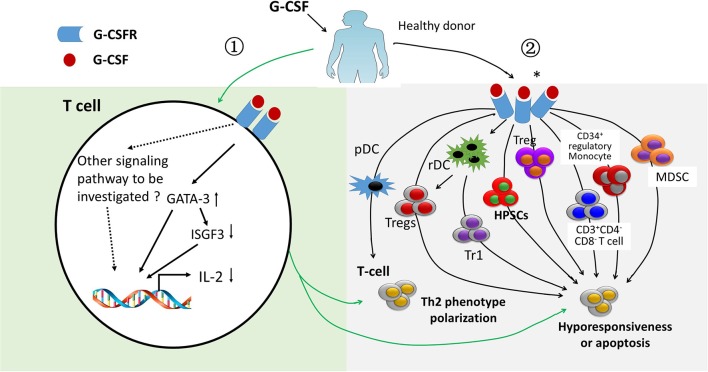Figure 3.
Immune regulatory effects of treating healthy donors with granulocyte colony-stimulating factor. Granulocyte colony-stimulating factor (G-CSF) has immune regulatory effects on T cells via direct (light green area) and indirect mechanisms (light gray area). ① ISGF-3 was down-regulated and GATA3 was up-regulated by G-CSF through binding G-CSF receptor, leading to a polarization of T cells from Th1 to Th2 phenotype as well as hyporesponsiveness of T cells (light green area). ② Effects of G-CSF obtained from G-CSF-primed allografts on polarizing T cell from Th1 to Th2. Suppressing T cell proliferation ability by regulatory T cells (Treg), type 1 Treg, CD34+ monocyte, myeloid derived suppressor cells, and CD3+CD4−CD8− T cells obtained from G-CSF-primed allografts either via direct contact, cytokines, such as interleukin-10 and transform growth factor-β, or via other molecules, such as arginase-1 and reactive oxygen species (light gray area). *indicates G-CSF receptor expressed on immune cells, such as myeloid-derived suppressor cells.

